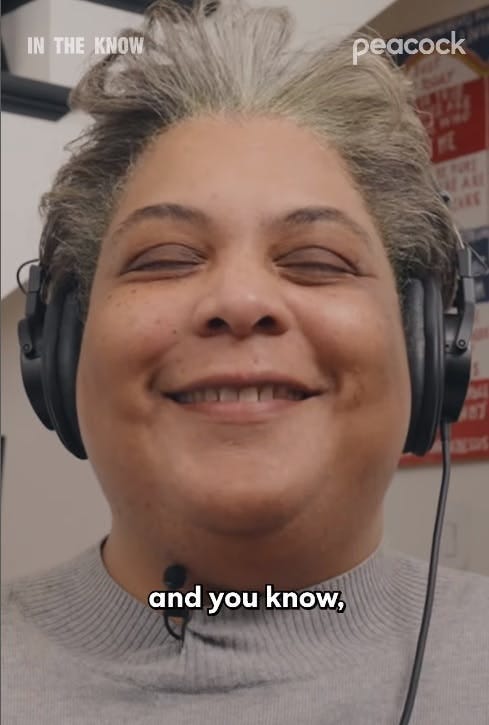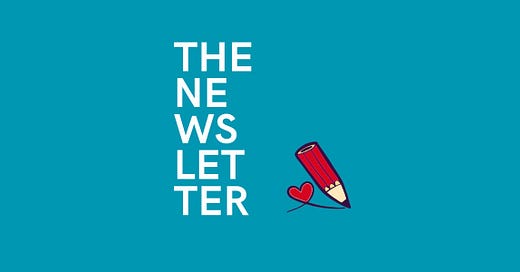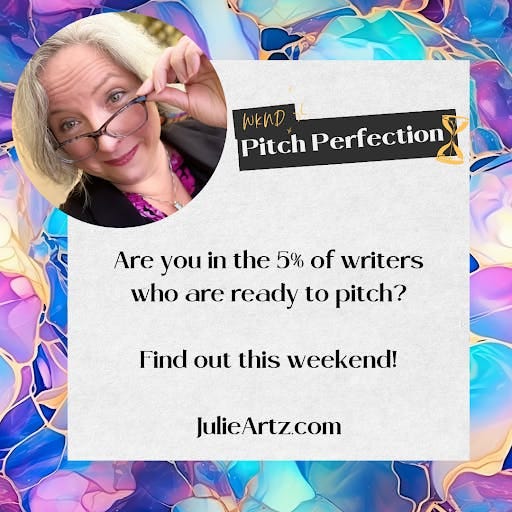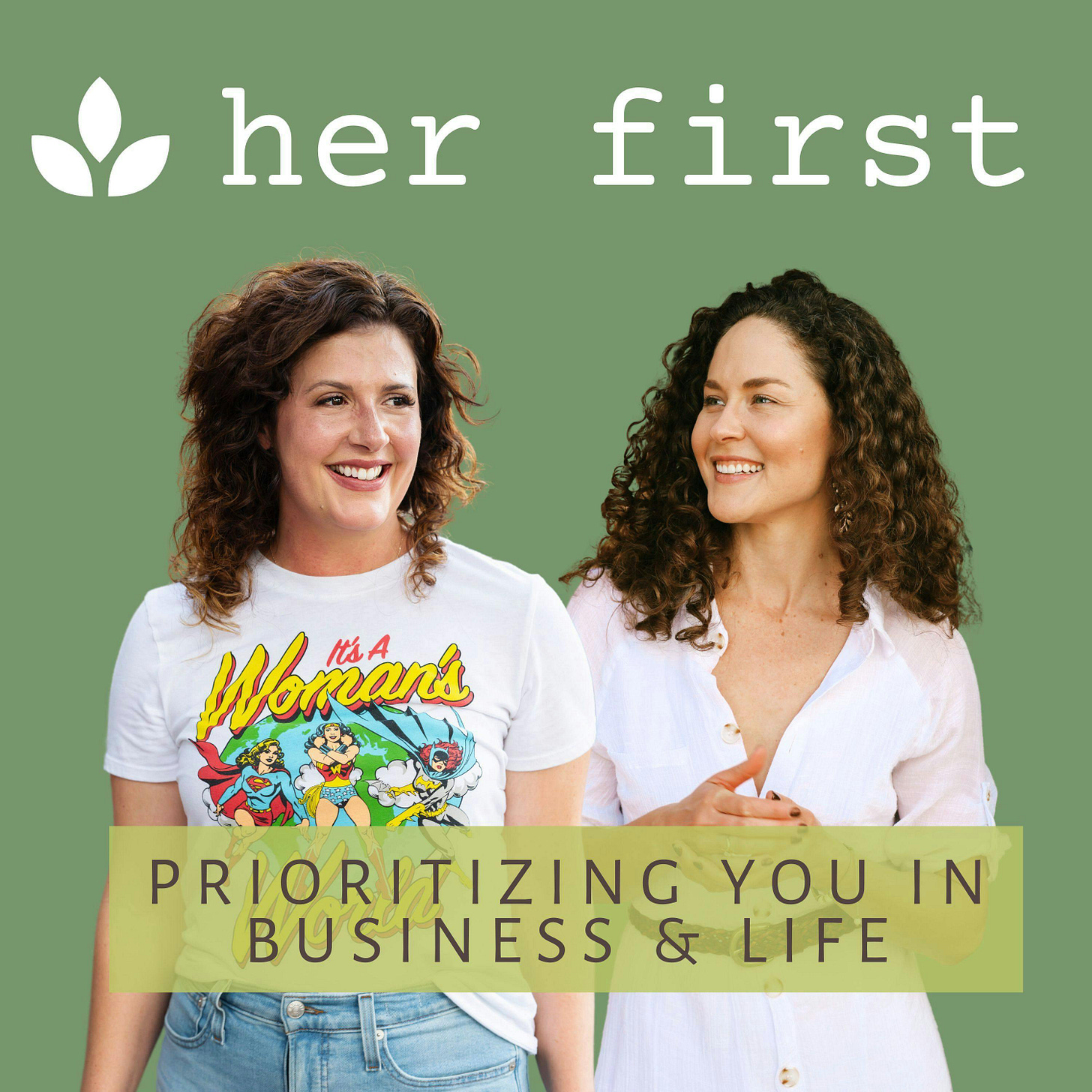Happy Thursday, writers!
I set a new challenge for myself this year: at least once a week, I make a plan to do something social. I highlight it in yellow on my calendar so I can see it. Zoom events don’t count—it has to be something out of the house, and it has to be something involving at least one other human being.
I remember a time in my life when socializing wasn’t a challenge at all. The challenge was to fight FOMO and stay home. I had plans every night of the week. I could stay out until 2 a.m. and still roll out of bed a few hours later, grab a shower and a cup of coffee, and show up at work on time and ready to go. Those days are long gone.
I’m planning a trip with my family to Solvang in June to go out to dinner and see Little Shop of Horrors at the outdoor amphitheater under a starry night sky. I’m excited about the outing—it was my idea. But I’m already dreading the late hour I’ll get home. So far this year, most of my social plans have concluded by 8 p.m., but I’ve been making and keeping those plans, and it’s made a difference.
Since January 1st, I’ve shared ten lunches, five coffees, two brunches, two afternoon snacks, several dinners, and a breakfast. I’ve enjoyed two birthday parties, one potluck, one book launch party, one Oscar party, and one happy hour. I’ve hosted two brunches and four out-of-town guests. I’ve gone on one weekend trip to Monterey, and although my reasons for the trip were sad ones, I saw some of the people I love most in the world, and the change of scenery gave me some much-needed peace.
I’ve been a lot more social this year than I was the previous four years combined. I get outdoors—gotta get that Vitamin D! But I’m an introvert and a homebody as it is, and between work, the pandemic, school (so much school), and launching a new business, I’ve had easy excuses not to go out. How about you?
This new project of mine has been rewarding. The outings have been fun and worthwhile, and I’m enjoying connecting in person with the people I like and love. Planning the outings and seeing those yellow-highlighted dates on my calendar has given me something to look forward to each week. It’s all a part of creating a framework for my life that centers my actual life—something Michelle Pualani inspired me to do last year. Read about her new podcast Her First under "Some Things for Living a Writing Life," below. Then make some plans for the weekend!
XOXO
Leanne
NEWS & ANNOUNCEMENTS
New Short Story Coming Soon.
My short story "The Big South" was accepted for publication! Watch for it in the summer issue of The Coachella Review, coming June 1st.
Kelp Journal Is Open for Submissions.
Reminder: Kelp Journal is open for submissions of fiction, nonfiction, and poetry through May 15th. Its daily, The Wave, is always open for submissions, and Kelp Books, an indie press located in Pebble Beach, California, recently opened for submissions.
Is Your Book Ready to Query?
One of the top questions writers ask me is, "How do I know when my manuscript is ready to query?” My friend and colleague Julie Artz has read close to a thousand queries in her years as a Pitch Wars mentor and book coach. A week from today, she's launching a self-paced course called WKND Pitch Perfection that takes you step-by-step through everything she knows about query-writing. Bonus! From April 18 - 21 only, the course will be available for $49, so for less than the cost of a query review from your local writing conference, you can have life-time access to a self-paced course that will teach you how to write a pitch you can send out with confidence. After April 21st, the course will be $89.
SOME THINGS FOR READERS
7 Very Short Books That You Can Read in One Sitting
"A few years ago, I found myself getting into short books. Works of fiction mostly, very short story collections. I was quite literally attracted to their shortness—the slim spines a definite selling point. At first I worried that my attention span was shrinking. That soon—perhaps very soon—I wouldn’t read anything at all. But no: I gave these books my full attention, savored every word. I came to view them as heroic—especially in a world filled with baggy prose. They got in, they got out, they were precise and concise. They were diamonds, or daggers, or single burning rays of sunlight—whatever metaphor you like." (Michael Jeffrey Lee for Electric Literature)
The Man That Got Away
"I write history—another way of saying half my life I live in the past. It’s not a bad place to live, either. Anything good that’s ever happened is there. That life I live at a desk halfway between two posters, both gifts from my dad. Behind me is a wall-size reproduction of Otto Dix’s Sailor and Girl, the cover art of a favorite novel, the mad and carnal Sabbath's Theater, won at auction from the estate of the author, Philip Roth. On the opposite wall hangs a considerably smaller poster of Jim Bailey, the greatest Judy Garland impersonator who ever lived. I’m in the middle. My job, simply stated, to turn back the clocks, to raise the dead, is impossible." (Sam Wasson for Alta)
Reese's Book Club April Pick: The Most Fun We Ever Had
I'm adding this one to my TBR pile today. It's described as "[a] multigenerational novel in which the four adult daughters of a Chicago couple—still madly in love after forty years—recklessly ignite old rivalries until a long-buried secret threatens to shatter the lives they've built." This description has me all in, and it's also a fantastic lesson in crafting an elevator pitch!
Newly Single in a World of "We"
Enjoy the short story "Women Who Rule The Screen," from Kate Axelrod's debut collection, How to Get Along Without Me. "It’s a deceptively simple story about a young woman in her twenties who, still heartbroken after the end of a romantic relationship, goes to visit her cousin, her wife, and their new baby. In the opening paragraph, our narrator admits: 'I was no longer in a place where I could accurately say I was going through a breakup, and yet, I still really felt like I was going through a breakup.' She’s hungover and lonely, her friends in her social group are starting to pair up—they’ve stopped 'shit-talking their partners'—and she longs for the comfort of family, the sweetness of an infant, and the kind of domestic contentment that, because her cousin is older, feels 'aspirational.'” (Recommended and introduced by Edan Lepucki for Electric Literature)
SOME THINGS FOR WRITERS
Character Agency for Beginners
"Agency in storytelling is about characters being able to contribute to the story in a meaningful way. It’s about your characters making things happen. Do note that it’s not necessarily about making the right things happen. Agency isn’t about being successful—it’s about doing, or even just about making the decision to do something. It’s not about winning; it’s about playing the game." (Nils Ödlund for Mythic Scribes)
Who Makes It Happen? Giving Your Characters Agency
"Writers are often warned off of passive 'be' verbs that suck the life out of their prose—but the be' trap of passivity can also suck the life out of your characters. Regardless of how richly developed your characters are, it’s not enough for a protagonist to simply be interesting, multifaceted, layered. They also need to do. Characters who don’t—who have no agency, don’t captain their own ship—give readers nothing to invest in or root for, and they lie flat on the page no matter how exciting the rest of your story may be." (Tiffany Yates Martin for Jane Friedman)
Conflict + Choices = Character Agency
"Character agency is a hot topic these days, but truly it was always an important topic for writers. Why? Because a character (particularly a protagonist) with no agency is a character who isn’t likely to be very interesting. More than that, a character with little to no agency won’t be able to generate and/or respond to conflict. The result? The plot grinds to a halt." (Becca Puglisi for Helping Writers Become Authors)
Character Agency and Why It Matters
"‘Character agency’ in fiction is used to describe the ability a character has to take action to affect the events of the story. It’s often used in a negative sense. Rejection letters may refer to the ‘lack of agency’ of the main character as the reason a literary agent passes on a submission. It’s become quite a fashionable phrase to explain why a story’s just not working, so any writer aiming to get published will want to consider whether their main character is missing out on their full potential for ‘agency’." (Louise Dean for The Novelry)
4 Ways to Develop Character Agency
"Early on in my writing career, I’d never heard the term 'agency.' Then I started hearing it everywhere. I suspect I’d crossed a learning threshold and had begun reading more advanced blogs and books, and had stumbled into a higher level of writing advice than I had previously seen. To paraphrase ... Rochelle Melander, I had leveled up as a writer." (Janice Hardy for Fiction University)
How to Write High Agency Characters
"Agency is your character’s ability to make their own decisions, act on their motivations, and create meaningful developments in the story. ... High agency characters act on what they believe (or, they act on what their complex set of emotions convince them to do). High agency characters don’t always make the right choice, but they always make an interesting one. It is the act of choosing – and getting to watch the consequence of their actions—that keep us readers glued to the page." (P.S. Hoffman for his blog)
SOME THINGS FOR LIVING A WRITING LIFE
How to Gain Traction in Your Career: Q&A with The Thriller Zone's David Temple
"I would encourage anyone who genuinely wants to write to simply write. Not for the money (there may never be any), not for the prestige (I feel much of that is fleeting), and not for the attention (who needs any more of that? I mean, really). Bottom line: write as if your life depends upon it, IF your happiness depends upon it. Otherwise, there are many bigger, better, stronger, richer ways to make a living, feed your happiness, or find a pastime that pleases you." (Kristen Tsetsi interviews David Temple for Jane Friedman)
When Is the Right Time to Write a Piece?
"I think that often memoir writers start writing almost immediately. They might even still be in the middle of the situation that they’re in because they feel this urgency or this need to just get the words out or get the story down. And that’s fine. I mean, that’s fine if that’s what you need to do. ... But with memoir, we do need some perspective and the longer we’re away from the events, our perspective changes." (Marion Roach Smith with guest Suzette Mullen on the Qwerty podcast)
Her First: Prioritizing You in Business & Life
One of my favorite things to work with women writers on is the mindset shift needed to make writing a priority. How do we fit our passions into our too-busy lives? I've taken several courses with women-centered life/business coach Michelle Pualani. One of her courses on work/life balance for entrepreneurs both surprised me and changed my life. I'd expected something about how to get more done in a day—isn't that the goal? But instead it was really about what it said it was about: achieving a healthy work/life balance. It inspired me to come up with what I call a "framework for my days" that is all about building days that support my mental and physical health first and then cobbling my writing, my work, and my other endeavors into that framework. I just found out that Michelle and her friend Joanna Newton launched a podcast in August that addresses these issues every week. I've started listening from the first episode and invite you to do the same. (Michelle Pualani & Joanna Newton)
SOMETHING TO MAKE YOU LAUGH

5 QUOTES (A MINI COURSE ON CHARACTER AGENCY)
"Your protagonist must directly influence or engineer her own destiny. If she doesn't, she isn't the hero; she's a passenger in the story."
—Tiffany Yates Martin
"Agency is the reason your protagonist bothers to get up in the morning."
—Janice Hardy
"The fact is that you don’t see many successful tales about protagonists with no agency. Most of the time, they just don’t resonate with readers because the character is a bystander in their own life."
—Becca Puglisi
"Without agency, characters are little more than leaves, pulled along by the river. They don’t make an effort to change their situation, therefore we don’t care about them."
—P.S. Hoffman
"You're supposed to be the leading lady of your own life, for god's sake!"
—Kate Winslet as Iris in The Holiday
Leanne Phillips
Writer | Book Coach | Editor
leannephillips.com





